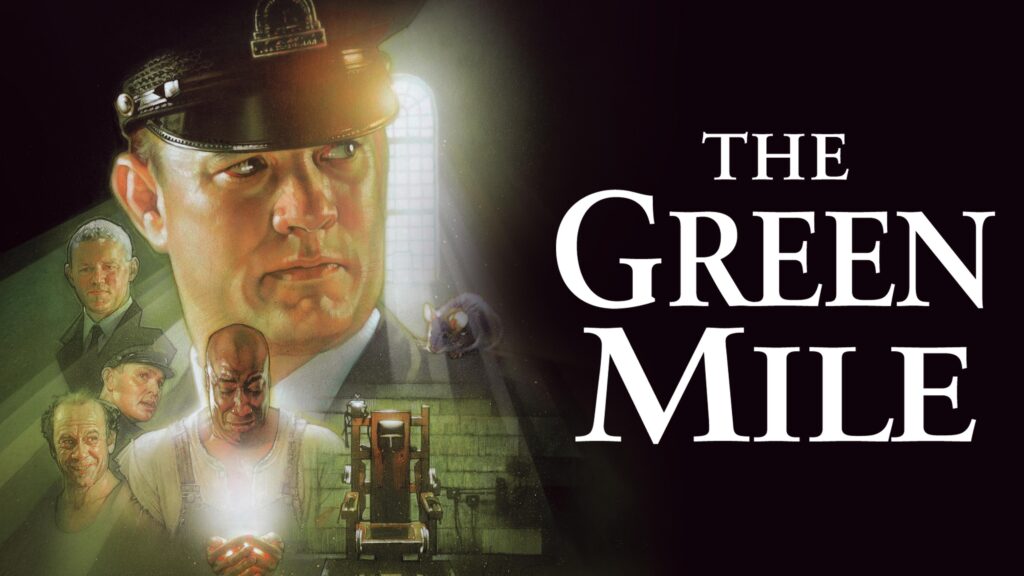
The Green Mile, directed by Frank Darabont and based on Stephen King’s serialized novel, is a poignant and powerful film that explores themes of compassion, injustice, and the complexity of human nature. Released in 1999, this drama stars Tom Hanks as Paul Edgecomb, a death row prison guard, alongside Michael Clarke Duncan as John Coffey, a physically imposing yet gentle inmate with a mysterious gift.
Set in the 1930s, the film unfolds in the cold, bleak environment of the Cold Mountain Penitentiary’s death row, known as the Green Mile. Paul Edgecomb and his fellow guards, including the hardened but ultimately sympathetic Brutus “Brutal” Howell (David Morse), oversee the inmates awaiting execution. The film’s narrative is framed as a recollection by Paul, who reflects on his experiences and the extraordinary events that transpired during his time on the Green Mile.
The arrival of John Coffey, convicted for the brutal murder of two young girls, changes the lives of the guards and the other inmates. Despite his massive size and intimidating presence, Coffey possesses an innate kindness and an extraordinary ability to heal others, which sets him apart from the other inmates. Michael Clarke Duncan’s portrayal of Coffey is both heartbreaking and inspiring, capturing the character’s innocence and depth with remarkable nuance.
As Paul and the other guards interact with Coffey, they begin to question his guilt and the moral implications of their roles in the execution process. The film deftly weaves together elements of magic realism with profound emotional themes, challenging viewers to confront their own beliefs about justice, punishment, and humanity.
One of the most powerful aspects of The Green Mile is its exploration of the human capacity for empathy and connection. The relationships that develop between the guards and the inmates highlight the complexities of their situations. Notably, the bond between Paul and Coffey becomes central to the narrative, as Paul struggles with his sense of duty and his growing understanding of Coffey’s true nature.
The film also features memorable performances from a talented ensemble cast, including David Morse, Bonnie Hunt, and Sam Rockwell, each contributing to the emotional depth of the story. The film’s pacing allows for moments of reflection, as well as the juxtaposition of heart-wrenching events with moments of levity, providing a rich tapestry of human experience.
The cinematography and score further enhance the film’s emotional resonance. Darabont’s direction creates a haunting atmosphere, immersing viewers in the oppressive environment of the prison while also allowing moments of warmth and tenderness to shine through. The musical score, composed by Thomas Newman, beautifully complements the narrative, evoking a sense of nostalgia and longing that permeates the film.
In its climax, The Green Mile delivers a heart-wrenching and unforgettable conclusion that resonates with viewers long after the credits roll. The film leaves audiences contemplating the nature of life, death, and the power of compassion in the face of suffering.
In conclusion, The Green Mile (1999) is a cinematic masterpiece that combines stunning performances, thought-provoking themes, and emotional depth. Through its exploration of humanity and redemption, the film challenges viewers to reflect on their own perceptions of justice and mercy. With its powerful storytelling and unforgettable characters, The Green Mile remains a timeless classic that continues to resonate with audiences around the world.




